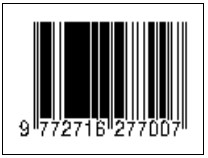TANGGUNGJAWAB PIDANA PELAKU PRAKTIK KEDOKTERAN OLEH BUKAN DOKTER MENURUT UNDANG-UNDANG NOMOR 29 TAHUN 2004 TENTANG PRAKTIK KEDOKTERAN
Program Studi Magister Ilmu Hukum
Abstract
Doctors as the first destination of patients and health workers in overcoming all health problems. The services provided are limited to the basic medical competencies acquired during medical education. In carrying out their practice, a doctor and dentist are authorized formally (formeele bevoegdheid), or materially (materialeele bevoegdheid) by the competent authority. The government itself has made a special law that regulates medical practice, namely Law No. 29 of 2004, with the aim of protecting the public from victims of medical practices that are not up to standard, as well as protecting doctors from irresponsible lawsuits. Although medical practice has been specifically regulated, in fact there are still many individuals who practice medicine against the law. What is interesting to study is how criminal responsibility for perpetrators of medical practice by non-health workers is and how the obstacles experienced by law enforcers in taking action against the perpetrators.
In discussing this thesis, the author uses a normative juridical research method with the aim of finding the law in reality (inconcreto). The specification used is descriptive analytical, which not only describes the problem, but also analyzes it through the applicable regulations in criminal law. Data collection techniques were carried out by conducting library research and field research to collect primary and secondary data. Finally, all the data obtained were analyzed using qualitative juridical methods.
The results of the study conclude that the criminal liability of medical practitioners by non-health workers cannot be fully implemented because of the judge's consideration that can mitigate, namely the provision in the explanation of Article 14(a) which states that conditional criminal decisions are only applied to convicts whose original sentence is no more than of one year. The obstacles faced by law enforcers in taking action against perpetrators of medical practice are the absence of reports from the public who feel aggrieved, while repressive law enforcement must be based on reports from the public.
References
H.R Otje Salman S dan Anton F . Susanto, Teori Hukum ( Mengingat, Mengumpulkan, dan Membuka Kembali),Rafika Aditama, Bandung,2004
Jan Remmelink, Komentar Atas Pasal – Pasal terpenting Dari Kitab Undang – Undang Hukum Pidana Belanda Dan Padanannya Dalam Kitab Undang – Undang Hukum Pidana Indonesia, PT.Gramedia Pustaka Utama Jakarta, 2003
Kansil, C. S. T., & Christine, S. T, Pengantar ilmu hukum dan tata hukum Indonesia. Balai Pustaka, Jakarta:2014
Konsil Kedokteran Indonesia , Konsil Kedokteran Indonesia ( KKI) . Konsil Kedokteran Indonesia, Jakarta, 2006
Mulyadi, Lilik. Kapita Selekta Hukum Pidana Kriminologi dan Victimologi , Djambatan, Jakarta, 2004, h. 35
PAF. Lamintang, Dasar-dasar Hukum Pidana Indonesia, Sinar Grafika, Jakarta, 2019, hlm.177.
Sahetaphy, J.E, Kejahatan Koeporasi, PT Refina Aditama, Bandung, 2002
Sudarto, Kapita Selekta Hukum Pidana, Alumni, Bandung, 18986
Kitab Undang – Undang Hukum Pidana Buku II Dan Buku III
Undang-Undang Nomor 29 Tahun 2004 Tentang Praktik Kedokteran
Permenkes NO.919/MENKES/PER/X/1993





